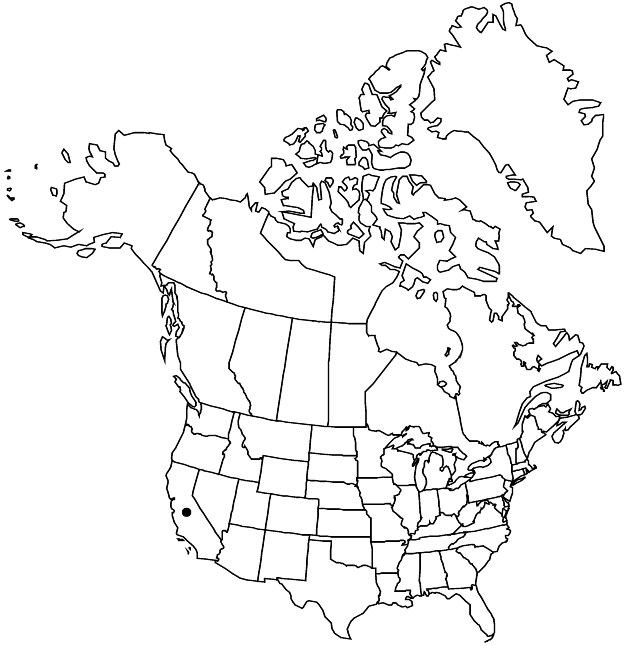Silene laciniata subsp. californica
Sida 21: 888. 2004.
Stems decumbent at base, straggling to erect, leafy throughout, sparsely branched, scaly proximally below ground, with soft, short pubescence. Leaves: proximal blades oblanceolate, sometimes broadly so, narrowed into short pseudopetiole, 2–6 cm × 6–25 mm, shortly pubescent abaxially, subglabrous adaxially; distal sessile, blade lanceolate or ovate-lanceolate to broadly elliptic, 2–9 cm × 5–30 mm, apex acute to shortly acuminate. Inflorescences poorly developed, usually 1–3(–5)-flowered, open cymes, bracteate; bracts leaflike, lanceolate to ovate-lanceolate. Calyces broadly tubular, widened distally, 15–25 × 4–8 mm in flower, obovate to turbinate in fruit and to 13 mm broad, more than 1/2 as broad as long. Capsules ovoid. 2n = 48, 72.
Phenology: Flowering spring–summer.
Habitat: Dry, open woodlands, chaparral, rocky hillsides and cliffs
Elevation: 0-2200 m
Distribution

Calif., Mexico.
Discussion
The recently described Silene serpentinicola is similar to subsp. californica but differs in its short, erect, more or less solitary flowering stems and the much larger appendages of the flowers.
Selected References
None.